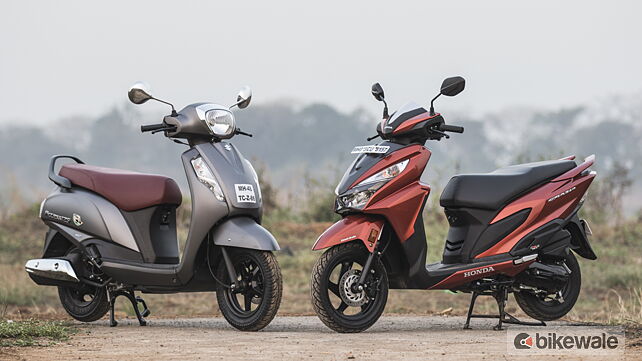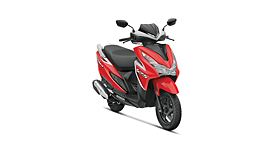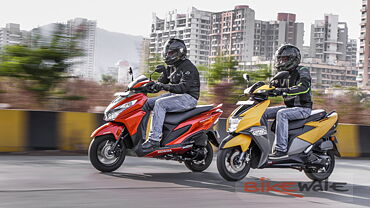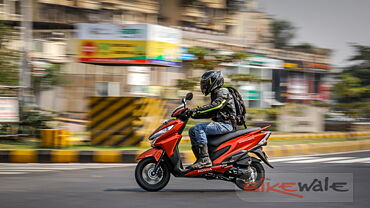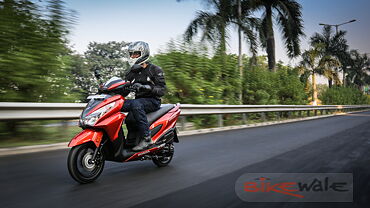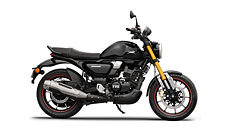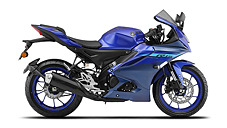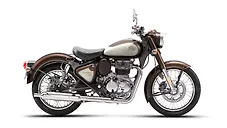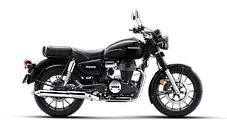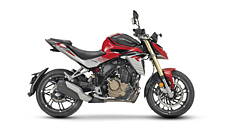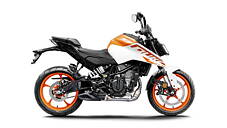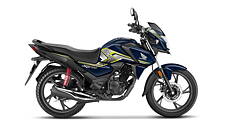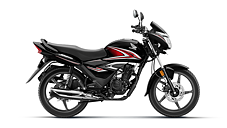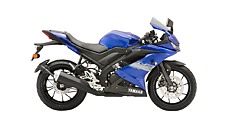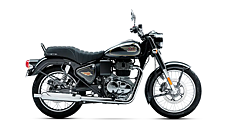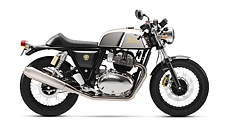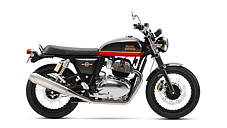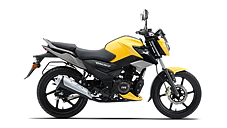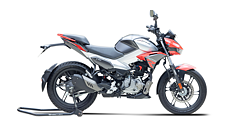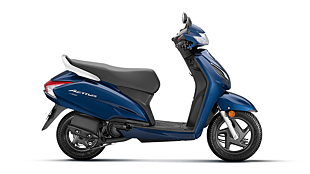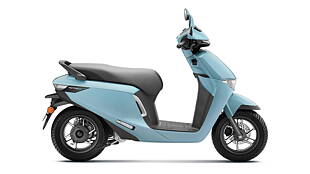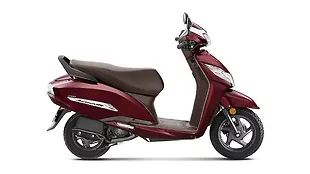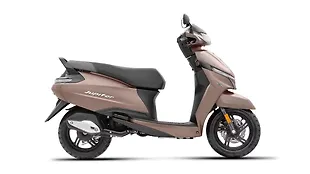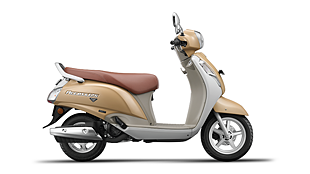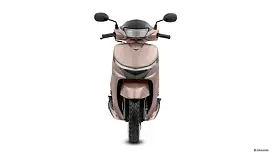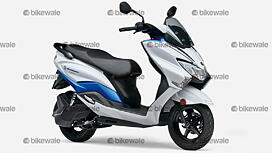Introduction

Scooters are the 'in' thing right now. Ask anyone you know, and chances are, they either have a scooter in the house, or are looking to purchase one. Honda alone sells enough Activas every day to mobilise an army. However, there's always room for improvement, and the next wave of growth will come from the 125cc segment. As with motorcycles, the scooter user will want more. More power, more features, more desirability. Enter the Grazia - but how does it stack up against our favourite scooter, the Suzuki Access 125?
Looks

There's no question that two very different sets of people were drafted for the wishlist when these scooters were conceived. The Access is a bland, non-offensive design. It will appeal to a really wide audience, and the touches of chrome lend it class. Suzuki has also got onto the neo-retro bandwagon with its 'special edition' range that has matte paint, black wheels, Vespa-style round chrome mirrors and a not-quite-beige seat cover. However, it won't excite any passion as such. The Grazia, though... We've encountered people who booked it just because of the way it looks.

It has a very in-your-face design, and the loud colours complement it perfectly. While you would want an Access in the lovely deep blue, the Grazia works best in this loud orange. Of course, the Grazia is a very polarising design, and a few years on it won't age well, but the philosophy it follows is different to the Access - the original Access stayed the same for nearly a decade and did well, while the Honda Dio had numerous cosmetic updates in the same span of time. We can't deny, though, that the Grazia's instrument cluster feels very futuristic compared to the ho-hum unit on the Access. This round goes emphatically to the Grazia, but the Honda's design won't age as well as the Suzuki’s design will.
Instrumentation, Riding position

To pick up where we left off - the Access' instrument cluster is dominated by a speedometer. The fonts are clear but bland, and the white background matches the sober theme. The speedo is flanked by two lights - the high beam indicator and a common light for the indicators. At the bottom is a digital section which includes a fuel gauge - this blinks when you reach reserve. You can toggle between the odometer and two trip meters, and there is a service due indicator as well as an oil change indicator that light up when they are due.

The Grazia has an all-digital instrument cluster that echoes the Africa Twin. It is split into an upper unit with blue backlighting and a 'reverse LCD' display, and a lower unit with conventional orange backlighting, like the Access. It offers all that the Access does, but in digital form. It also includes a few extras. The upper section includes a tachometer; something we haven't seen in a scooter since the Kinetic Blaze. The bottom half has a clock. It offers just one trip meter to the Access’s twin trips, but it gets back with two lights for the indicators (indicator indicators?), one for each side. There’s also an interesting feature called ‘Eco Mode’ which consists of three green LEDs at the top of the cluster that light up depending on how fast you’re going and how much throttle is applied. All three stay on if you cruise from 30-50kph, for the most part. It is a fun way of encouraging the rider to ride efficiently.

The riding position echoes the styling – the Grazia’s handlebar is lower, and the footboard slopes towards the front. Dio owners will be right at home with this seating position, especially since the seat’s dimensions are is exactly the same as theDio’s seat. The Access offers a more upright position, with a higher handlebar, and a footboard that is neutral. Even the pillion seating is much better on the Suzuki thanks to the mile-long seat – although we don’t understand why the footrest for those who sit side-saddle is an optional extra. Suzuki has moved backwards from the lovely aluminium-look footrests of the first-gen Access to low-rent black rubber ones, but they are more comfortable than the integrated footrests of the Grazia. The Grazia’s pillion seat is smaller and uncomfortable compared to the Access. This one is a tie, the Grazia’s instrumentation vs the Access’s much better seating comfort.
Performance and handling

The Access has shed weight, and it surprised us with its ability to punch above its weight, managing to keep up with the likes of the Aprilia SR150 despite a middle-of-the-road power figure of 8.4bhp and 10.2Nm. The Grazia, on paper, offers more with 8.5bhp and 10.5Nm, but it doesn’t feel like that on the road. The Access leaps forward from rest, and keeps its lead. The Grazia manages to eat into the lead as the speeds go up, its strong midrange helping it play catch up, but the Access is always unruffled. The Grazia feels positively frenetic in comparison, which is strange for a Honda. The Access powertrain simply feels like it was developed a generation after the Grazia’s powertrain was.

The Grazia is sprung quite stiffly, and therefore takes a lot of concentration while riding on broken roads. The Access’ more pliant ride makes it better over less-than-perfect roads. Braking on both is helped by a front disc brake. The Honda offers the patented CBS system as an additional safety blanket. However, this is the fly in the Chardonnay – pull on the left lever, and, weirdly, the right lever also pulls itself in a fraction. So if you use just the Grazia’s front brake, feel and progression are faultless. However, use both, and the changing feel from the right lever injects an element of doubt to the rider. This is a common thing with a combi-braking system but it is pronounced in the Grazia.The Access is surprisingly willing to turn, and while the Grazia is an equally willing playmate, the overall compromise of ride, handling and braking is better with the Access. This round goes to the Access, whose looks belie a chassis and powertrain setup that is exceedingly willing to play.
Verdict

Both the Suzuki Access 125 and Honda Grazia are premium scooters – there’s no doubt about that. The Access offers a 12V charging socket as an optional extra, while the Grazia has LED headlamps and a cubbyhole that shuts along with that 12V charging socket. Both retail at roughly the same price: Suzuki wants approximately Rs 72,000, and Honda wants Rs 74,000 (on-road, Mumbai). The warranty they offer is identical, at 2 years. This head-to-head result favours the Grazia by the slimmest of margins, a single point, thanks to its features list and desirability. For those whowho don’t set much store by those two parameters don’t matter a lot, the Access will also serve just as well.
Final scores
| Parameters | Max Points | Honda Grazia | Suzuki Access 125 |
|---|---|---|---|
| Rank | 1 | 2 | |
| Looks & styling | 10 | 7 | 5 |
| Ergonomics & Quality | 10 | 5.5 | 6 |
| Features & Tech | 10 | 7 | 5 |
| Engine & Gearbox | 10 | 5.5 | 6 |
| Performance | 10 | 6 | 6.5 |
| Ride Quality | 10 | 5 | 6 |
| Handling & Braking | 10 | 5 | 6 |
| Fuel Efficiency | 10 | 5 | 6 |
| Price & Warranty | 10 | 6 | 6 |
| Desirablility | 10 | 6 | 4.5 |
| Total | 100 | 58 | 57 |
Specifications
| Make | Honda | Suzuki |
|---|---|---|
| Model | Grazia DLX | Access 125 SE |
| POWER TRAIN | ||
| Engine Type | Air cooled | Air cooled |
| Capacity | 124.9cc | 124cc |
| Max Power7 | 8.52bhp | 8.4bhp |
| Max Torque | 10.54Nm | 10.2Nm |
| Gearbox | CVT | CVT |
| Clutch | Centrifugal | Centrifugal |
| CYCLE PARTS | ||
| Chassis | Underbone | Underbone |
| Supension F | Telescopic | Telescopic |
| Suspension R | Hydraulic | Hydraulic |
| Brakes F | 190mm disc | 120mm disc |
| Brakes R | 130mm drum with CBS | 120mm drum |
| Tyre F | 90/90-12 Tubeless | 100/80-17 Tubeless |
| Tyre R | 90/100-10 Tubeless | 90/100-10 Tubeless |
| MEASURES | ||
| Fuel Tank | 5.3 litres | 5.6 litres |
| LxWxH | 1812mm x 697mm x 1146mm | 1870mm x 655mm x 1160mm |
| Wheelbase | 1260mm | 1265mm |
| Kerb Weight | 107kg | 102kg |
| COST | ||
| Price (on-road, Mumbai) | Rs 74,000 | Rs 71,000 |
| Warranty | 2 years | 2 years |
Gallery
1/125
Honda Grazia Action
Double Tap to Zoom











